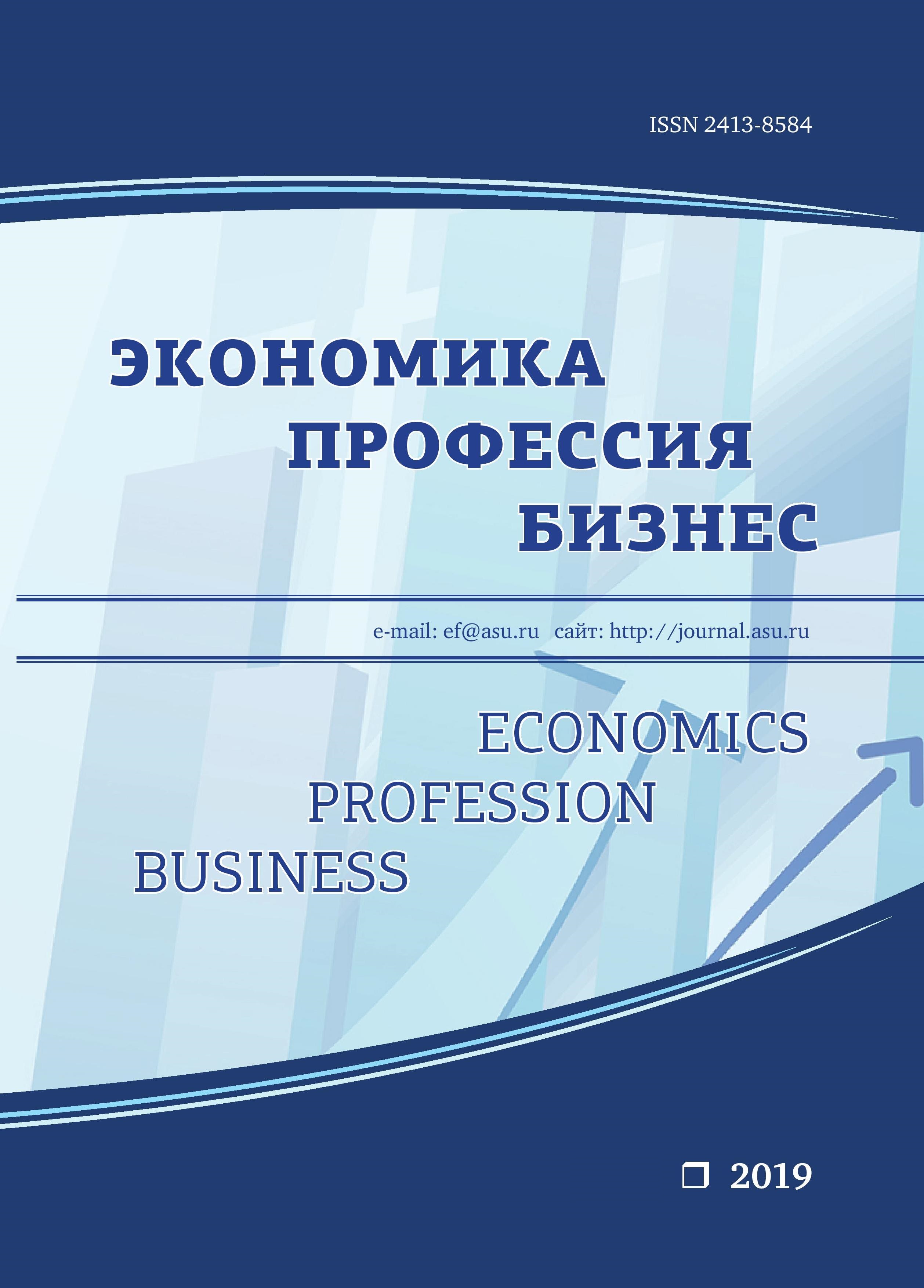COST NATURE OF WAGE
Abstract
The article is devoted to the theoretical study of the wage's nature value. Without touching upon the problem of the substance of value in the article the following questions are considered and the relevant conclusions are drawn.
The value nature of wages has nominal (monetary) and real (natural) values.
The starting and final point of the circuit of nominal (monetary) wages are money, or rather money as capital. Real (natural) wages in this movement is only a moment. The purpose of this circuit is to recover from the cash proceeds of the advanced monetary wage Fund.
On the contrary, the source and end point of reproduction of the labor commodity form is its commodity-natural form. Money, more precisely, money capital is only a passing moment. The purpose of this cycle is the reproduction of the labor force in its natural and commercial form.
The article shows that the purchase and sale of goods labor and its use has two forms of advance funds.
On the part of the employer there is an advance of cash wages (prepayment), that is employees need an advance for the normal reproduction of the labor force before the end of the reproduction cycle of finished goods. On the part of the employee can observe the advance of labor before the end of the work specified in the employment contract.
In General, the two-way advance of funds allows us to say that from the position of property rights, there is both the rent of labor and the rent of capital.
Value as a substantive basis of wage date and wage labor has three forms of existence: 1) cash existence of money; 2) non-cash existence of cash prices and 3) the estimated value of goods.
Downloads
Metrics
References
Трудовой кодекс Российской Федерации: текст с последними изменениями и дополнениями на 26 мая 2019 года. М.: Эксмо, 2019. 224 с.
Крышка В. И. Общеэкономический подход в исследовании основы (субстанции) деятельности некоммерческих и коммерческих предприятий // Экономика. Профессия. Бизнес. 2018. № 4. С. 35-45.
Блауг М. Методология экономической науки, или Как экономисты объясняют / пер. с англ.; науч. ред. и вступ. ст. В. С. Автономова. М.: НП «Журнал Вопросы экономики», 2004. 416 с.
Гегель Г. Наука логики: в 3 томах. М.: Мысль, 1970.
Маркс К. Капитал: критика политической экономии Т. I / введ. О. И. Ананьина; предисл. Л. Л. Васиной, В. С. Афанасьева. М.: Эксмо, 2012. 1200 с.
Маркс К. Капитал: критика политической экономии. Т. II / пер. с нем., фр., англ.; предисл. Л. Л. Васиной, В. С. Афанасьева; послесл. В. И. Маевского. М.: Эксмо, 2012. 1200 с.
Мизес Л. фон. Человеческая деятельность: тракт по политической экономии / пер. с 3-го испр. англ. изд. А. В. Куряева. Челябинск: Социум, 2012. 878 с.
Чангли И. И. Труд. Социологические аспекты теории и методологии исследования: монография. Изд. 4-е. М.: ЦСПиМ, 2010. 608 с.
Крышка В. И., Перекаренкова Ю. А. Формирование взаимосвязи между развитием человеческого капитала и ростом заработной платы: неомарксистский подход // Финансовая экономика. 2019. № 1. С. 599-602.
Крышка В. И., Перекаренкова Ю. А. Модель полного кругооборота товарной формы стоимости рабочей силы в связи с образованием человеческого капитала // Вестник ВСГУТУ. 2016. № 6 (63). С. 132-137.
REFERENCES
Smit A. Issledovanie o prirode i prichinakh bogatstva narodov. Moscow, Eksmo, 2017. 1056 p.
Trudovoy kodeks Rossiyskoy Federatsii (2019): tekst s poslednimi izmeneniyami i dopolneniyami na 26 maya 2019 goda. Moscow, Eksmo, 2019. 224 p.
Kryshka V. I. Obshcheekonomicheskiy podkhod v issledovanii osnovy (substantsii) deyatel'nosti nekommercheskikh i kommercheskikh predpriyatiy. Ekonomika Professiya Biznes. 4. Pp. 35-45.
Blaug M. (2004). Metodologiya ekonomicheskoy nauki, ili Kak ekonomisty ob'yasnyayut. Moscow, NP "Zhurnal Voprosy ekonomiki", 2004. 416 p.
Gegel' G. Nauka logiki. V 3-kh tomakh. Moscow, Mysl', 1970.
Marks K. Kapital: kritika politicheskoy ekonomii T. I. Moscow, Eksmo, 2012. 1200 p.
Marks, K. Kapital: kritika politicheskoy ekonomii. T. II. Moscow, Eksmo, 2012. 1200 p.
Mizes L. fon. Chelovecheskaya deyatel'nost': trakt po politicheskoy ekonomii. Chelyabinsk: Sotsium, 2012. 876 p.
Changli I. I. Trud. Sotsiologicheskie aspekty teorii i metodologii issledovaniya. Moscow, 2010. 608 p.
Kryshka V. I. & Perekarenkova Yu. A. Formirovanie vzaimosvyazi mezhdu razvitiem chelovecheskogo kapitala i rostom zarabotnoy platy: neomarksistskiy podkhod. Finansovaya ekonomika. 2019. 1. Pp. 599-602.
Kryshka V. I. & Perekarenkova, Yu. A. Model' polnogo krugooborota tovarnoy formy stoimosti rabochey sily v svyazi s obrazovaniem chelovecheskogo kapitala. Vestnik VSGUTU. 2016. 6 (63). Pp. 132-137.
Economics Profession Business is a golden publisher, as we allow self-archiving, but most importantly we are fully transparent about your rights.
Authors may present and discuss their findings ahead of publication: at biological or scientific conferences, on preprint servers, in public databases, and in blogs, wikis, tweets, and other informal communication channels.
Economics Profession Business (EPB) allows authors to deposit manuscripts (currently under review or those for intended submission to EPB) in non-commercial, pre-print servers such as ArXiv.
Authors who publish with this journal agree to the following terms:
- Authors retain copyright and grant the journal right of first publication with the work simultaneously licensed under a Creative Commons Attribution License that allows others to share the work with an acknowledgement of the work's authorship and initial publication in this journal.
- Authors are able to enter into separate, additional contractual arrangements for the non-exclusive distribution of the journal's published version of the work (e.g., post it to an institutional repository or publish it in a book), with an acknowledgement of its initial publication in this journal.
- Authors are permitted and encouraged to post their work online (e.g., in institutional repositories or on their website) prior to and during the submission process, as it can lead to productive exchanges, as well as earlier and greater citation of published work (See The Effect of Open Access).









